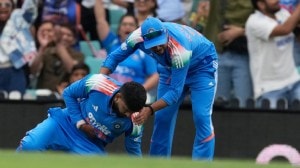Manipur looks at privatising power
Six months after a prepaid electricity card system was introduced in power-deficit Manipur,the state government is now looking at privatising power.
Six months after a prepaid electricity card system was introduced in power-deficit Manipur,the state government is now looking at privatising power. The government has engaged SBICAPS as a consultant to look into the unbundling of its generation,transmission and distribution systems.
Manipurs power shortage often leaves Imphal residents with as little as six to eight hours of power a day and those in the hill districts with two-three hours a day,sometimes only two to three times a week.
We have given SBI six months to submit its report on how this unbundling can be done. We will engage more consultants to see how generation can be improved. We will look at corporatising the entire system of power distribution on the lines that Delhi has done, says chief secretary D S Poonia. The only thing is that Manipur is a small state with restricted revenue generation and the system requires huge capital investment. We cannot have multiple competitors like Delhi has in its distribution system and are likely to have only one major concern taking care of distribution.
Poonia says the corporatisation will be done primarily for the four districts in the valley areas of Imphal to begin with,then extended to the rest of the state. A joint venture is likely to be set up between the government and PGCIL for transmission. The transmission aspect is extremely important as we are to receive at least 120-130 MW from the regional grid as an allotment but Manipur often cant absorb even 70-80 MW because the network is outdated, he adds.
The distribution system too is in a shambles with low billing and lower recovery of charges,and extensive tapping of lines.
Chief engineer of the power department Sarat Singh,meanwhile,says their prepaid electricity card system has been so successful in the two areas of Paona and Thangal Bazaar,which houses Manipurs commercial establishments,that the total demand has come down by 63 per cent. This is because power is now supplied only to cardholders,who in turn are wary of consuming more than necessary. As a result,these areas are receiving longer hours of power.
The power department has installed digital meters in the offices and residences of cardholders where the consumer can see how much power is being used and how much money from the card is being deducted. This has resulted in 100 per cent billing and collection for the first time in the state. In some places we are now able to provide 24 hours uninterrupted power, says Singh.



- 01
- 02
- 03
- 04
- 05




























